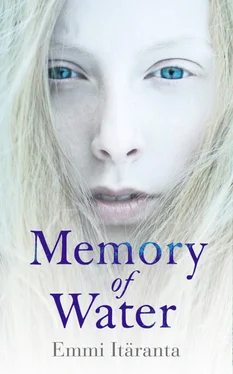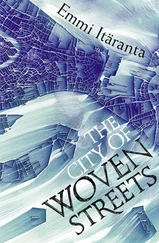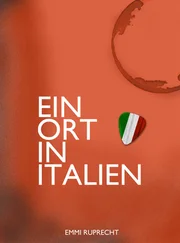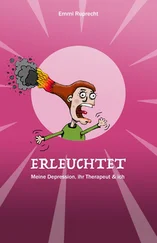Everything is ready now.
This morning the world is the way we left it, and yet I did not recognise it immediately when I opened the door and stepped into the garden. Not only the colour was different, but also the scent, and the silence: I know many silences, but this one was unfamiliar.
For a moment I thought I had been born again.
I wrapped the shawl tighter and pulled the sleeve ends of my cardigan to cover my hands. I could have stepped down from the veranda with my shoes and socks on, but I wanted to know how the icy grass would feel under my bare feet. The stalks rustled and their paper-crisp coldness cut through me when I walked to the rock garden.
The sun came out from behind the cloud and I was dazzled. I had imagined the brightness of past-world winters, but this brightness was different. A delicate layer of snow rested on the branches of the tea plants and on the grass and in the folds of the sand of the rock garden, and on tree leaves and the roof of the teahouse. When the light fell on it, my eyes watered, and I had to close them.
All waterskins on the veranda were empty. White frost covered their scratched sides. I carried the final skin from the kitchen to the veranda of the teahouse, picked up the broomstick and swept from the stone slabs the white-veined ghosts of leaves that were slowly beginning to get soggy in the sun. I selected a handful to be scattered on the stones again, so the path wouldn’t look too much like it had been swept. That was one of the things my father always insisted on.
The visitors’ entrance was narrow and angular around me as I crawled through it into the teahouse, pushing the waterskin ahead of me. I emptied the water into the cauldron and went to get some dried peat from the shed. In the water room I pulled the tea master’s book from under my cardigan and placed it on the floor under a shelf reserved for the teaware. I put a large metal pot, a smaller earthenware pot and a single teacup next to each other on a tray. I carried the tray to the edge of the hearth, sprinkled the remaining leaves from the pouch into the earthenware pot and started a fire under the cauldron.
I thought of my father, who was only in my blood and bones, and of my mother, of whom nothing remained but me.
I thought of Sanja.
I knew, like in a dream you know that the other person in the room is familiar, even if you don’t know their face, or like you know you love.
Steam began to rise from the cauldron, and I waited until I could count ten small bubbles at the bottom of it.
I filled the metal pot with hot water, prepared the mild tea in the earthenware pot and used it to warm the cup. Then I filled the small teapot again and poured the tea from the cup over it, until the brown, porous sides were wet. My movements flowed unforced, supple as a tree bending in the wind or a wave crossing the oceanbed.
The tea was clear and pale in the cup, its scent soft around me.
I slid the door open for the one who was coming, and settled in the middle of the teahouse floor, so I could see through the doorframe the trees arching over the path and the light sprinkled by the sun on the smooth, moist stones.
This is not the ending I imagined for myself. Yet it is the only one I have. Or that may not be entirely true: I suppose I could run through the gate and continue running until I heard a bang cutting through the air and felt a sharp burn somewhere in my body. Perhaps that would be quicker than waiting for the soldiers who must be drawing closer now, the blades of their sabres, the blood I will not see drying on the stone slabs. But it would only change the journey, not the outcome. There is no way out. Yet I have decided to keep breathing for as long as I can. I may end here, but there will be others who will carry the story forward. Perhaps some small stretch of the world will be more whole after them.
The ceremony is over when there is no more water.
I can’t see beyond this garden. I don’t know if cities have crumbled down, and I don’t know who calls the land their own today. I don’t know who is trying to confine the water and sky without realising that they belong to everyone and no one at all. There are no man-made chains that will hold them.
I don’t need to see beyond this garden, not anymore.
Very soon now, as long as I’m still alone in the teahouse, I will go into the water room, push my hand under the shelf and feel around until I find a small dent in the floorboard resting in the corner. It’s one of the boards from the old teahouse, darker than others. I will push my finger into the dent and lift the board, which is not nailed in place. I will wedge my other hand carefully under it, until I manage to move the board aside. Under it there is a dark niche which emanates the coldness of the earth.
The leather cover of the book is soft and warm, almost like a living thing under my touch. No one will see me place the book carefully into the niche through the hole and push it a little to the side, under the solid floorboards, so the fingers or eyes of a seeker would not catch it.
The visitor is opening the gate right now, stepping into the garden through it, looking for the path that leads to the teahouse. Her feet don’t leave marks in the thin snow. A wind rises and the tea plants shake shimmering dust from their branches. Luminous flakes float into the ground, where snow is already melting into flowing water, threading its narrow brook in light. I follow them as they take their place, deep, deep in the stream, where there is no beginning and no end.
The aftertaste of the tea is sweet in my mouth.
I have tried not to think about Sanja, but she bleeds into my thoughts, and I wonder: do I bleed into hers, into what may be left of her?
This image emerges before my eyes uninvited, and emerges again, and will not vanish: she is standing in the fell cave by the pond. She is looking into the foaming water, and I would like to think she is coming to me. Yet I see another her, turning away from me, and she is not coming back. I don’t know which one of them is real and which one is a reflection in clear water, so sharp that one might almost mistake it for real.
I can pick my own ending, the one I want.
The day outside is burning bright, and in the frame of the doorway I see her as she steps closer to me.
I reach my hand out to her.
She steps through the doorway.
‘What’s your business, miss?’ asks a blue-clad porter sitting in his glass-walled lodge. The entrance of the university building is quiet this early in the day.
‘I’m here to see Lecturer Kaitio,’ the girl says. She looks weary and narrow in the dim artificial light of the foyer, no older than twenty. ‘I haven’t arranged an appointment, but could you let her know I’m here, please?’
‘May I see your passpod?’ the porter asks and slides open a small window in the glass wall. The girl hands the pod to him. He reads the ID information on the screen, lifts the receiver of the internal phone off its hook and dials a short number. ‘Lecturer Kaitio?’ he says into the speaker. ‘There’s a young lady here who is asking to see you. Miss Vanamo.’ He measures the girl with his gaze, and something resembling a smile surfaces on his face. ‘All right, then.’ He places the receiver down. ‘She will come to meet you here.’ He hands the message-pod back to her.
The girl notices Lian Kaitio’s expression freeze for a passing moment when she arrives in the foyer. The porter is not looking at them, because he is busy fiddling with his mahjong game, and there is no one else in the hallway.
‘Please, follow me,’ Lian says, and the girl does.
When they enter Lian’s office, she pulls the door closed behind her, turns the key in the lock, seizes the girl’s shoulders and asks, ‘Where is Noria? Is she alright?’
Читать дальше
Конец ознакомительного отрывка
Купить книгу












